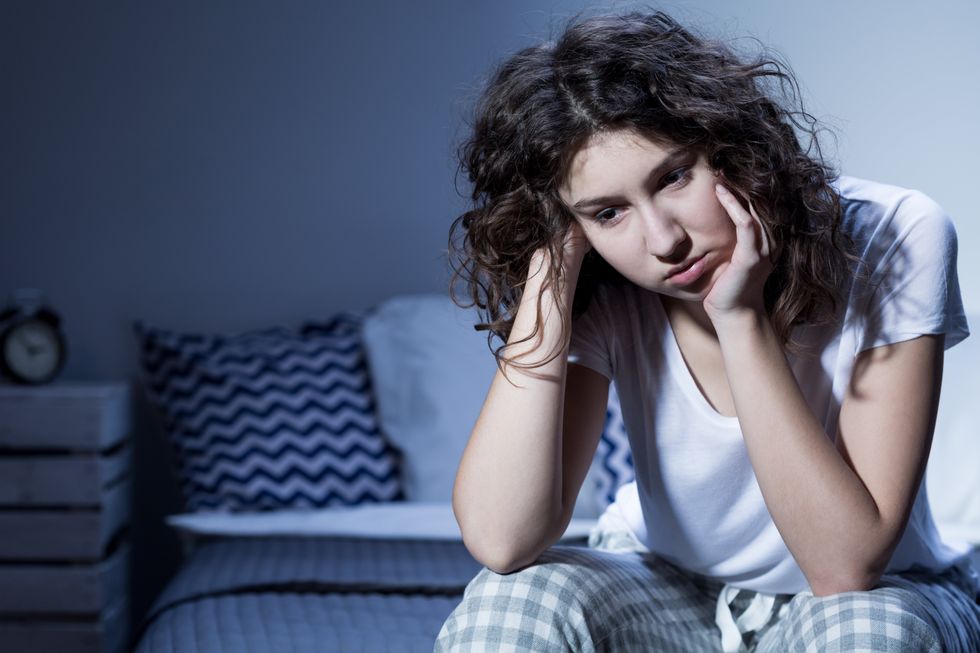Sleep Apnea – A brief overview
Snoring in your sleep isn't something you should take lightly. It could possibly be an indicator of one of the most common sleep disorders – sleep apnea. Most people that suffer from this disorder aren't even aware of it until their partner raises concerns about their snoring. So, what exactly is sleep apnea? It is a disorder where an individual's breathing is either paused multiple times or becomes shallow as they sleep. This could happen over 30 times in an hour of sleep.
The different types of sleep apnea
There are two main types of sleep apnea, namely, obstructive sleep apnea and central sleep apnea. In some cases, a person could suffer from a combination of both types.
Obstructive sleep apnea – Sleep apnea is categorized by its cause. With respect to obstructive sleep apnea, it is caused due to a blockage of the airway in the throat. This blockage could be a result of either collapsed soft tissue in the back of the throat or because of a smaller mouth and a tongue that is a too big for the mouth size. Obstructive sleep apnea is accompanied by loud snoring and breathing that stops at irregular intervals.
Central sleep apnea – This type of sleep apnea occurs as a result of the respiratory control center in the brain not functioning as it should. In central sleep apnea, the brain essentially fails to send a neural signal to the muscles to breathe while asleep.
Symptoms of sleep apnea – how it can disrupt your life and well being
The consequences of sleep apnea can range from severe to mild and can even be life threatening in some cases. The symptoms of sleep apnea are generally the same as a lack of sleep for a prolonged period, considering that sleep apnea effectively reduces the quality of sleep a person gets or even the duration of sleep.
Some of the main symptoms of sleep apnea are as follows –
- Fatigues
- Headaches
- Inability to focus/ concentrate
- High blood pressure
- Stroke
- Memory issues
- Restless sleep
- Disgruntled or groggy
- Sore throat
- Choking or gasping while sleeping
- Urge to urinate frequently during sleep
So how do you tackle sleep apnea?
One of the main challenges with this disorder is identifying and diagnosing it. Many people suffer from it and are oblivious to the fact that they have this kind of sleep disorder. If you happen to experience some or all of the symptoms of sleep apnea, then you should go to a sleep specialist or sleep doctor to get yourself checked. Even if a partner or someone you live with brings up your loud or excessive snoring, you should consult a sleep specialist to check if you suffer from sleep apnea.
Once diagnosed, some common treatments include CPAP (Continuous Positive Airway Pressure), where a device that uses air pressure to keep the upper airway open is attached in the form of a mask of some kind to the patient while he or she sleeps. This is one of the best treatments for obstructive sleep apnea.
Secondly, there are plenty of lifestyle changes one can make to alleviate or even cure themselves of sleep apnea and this includes – adjusting sleeping position, avoiding alcohol and certain sleep medications, losing weight if overweight or obese.





 Lumiere figure at the Disney Store at the Ala Moana Shoppi… | Flickr
Lumiere figure at the Disney Store at the Ala Moana Shoppi… | Flickr








 StableDiffusion
StableDiffusion StableDiffusion
StableDiffusion 10. Extra BlanketsJuwenin Home 100% Cotton Knitted Throw Blanket
10. Extra BlanketsJuwenin Home 100% Cotton Knitted Throw Blanket StableDiffusion
StableDiffusion StableDiffusion
StableDiffusion File:Kishlaru familie.jpg - Wikimedia Commons
File:Kishlaru familie.jpg - Wikimedia Commons Photo by Hanna Balan on Unsplash
Photo by Hanna Balan on Unsplash StableDiffusion
StableDiffusion black blue and yellow round illustrationPhoto by
black blue and yellow round illustrationPhoto by 





 woman holding glass jar
Photo by
woman holding glass jar
Photo by 






